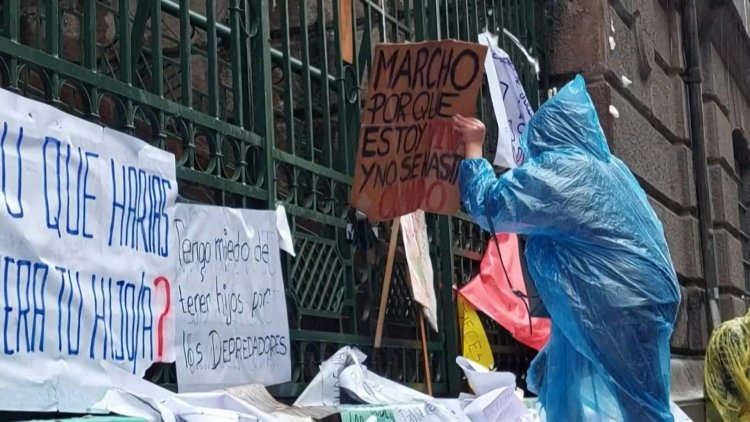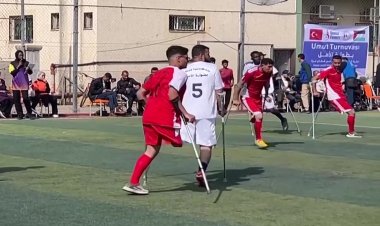"They kill us!": women march against gender violence and ask for justice in Bolivia

Hundreds of women marched from the city of El Alto to La Paz against gender violence and demanded justice for victims of sexual crimes in Bolivia.
"From November 29, 2020, that I was raped, to date, I have not found justice. It will be two years!" said Karen Mendoza, a 29-year-old social communicator.
"They kill us! They kill us as if we were animals! Every day more women die and we are naturalizing this," said Beerseba Sarzuri, 27, a university student and sister of a victim of sexual violence, through tears.
The trigger for the protest was the capture of Richard Choque Flores, a femicide who had been sentenced in 2013 to 30 years in prison without pardon, but released in 2019.
Last week two bodies of missing teenagers were found buried in their home.
The demonstrators gathered next to the delinquent's house, in El Alto, and marched from there to the gates of the Court of Justice of La Paz, about 6 kilometers away.
Shouting slogans against the police, judges and prosecutors, whom they branded as "corrupt", those present covered the building's steps with banners and graffiti in tribute to victims of gender violence.
They also hung a rag doll with red spots on the court's railings in reference to the victims and threw paint balloons at the facade.
In the midst of intense rain, relatives and relatives of murdered women, including the victims of Choque, continued to march to the Ministry of Justice, but a police checkpoint prevented them from approaching.
According to figures from the Economic Commission for Latin America (ECLAC), Bolivia is the country with the highest rate of femicide in South America, with 2 out of every 100,000 women victims of this crime in 2020. It is followed by Brazil, with 1.6.
In 2021, Bolivia reported 108 femicides, just shy of the 113 registered the previous year.
According to the latest available data, which comes from the 2016 Violence Prevalence Survey, 74.7% of Bolivian women who are married or in a free union have suffered some type of violence. The figure increases to 82.5% in rural areas.















